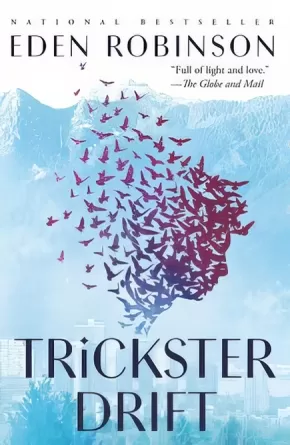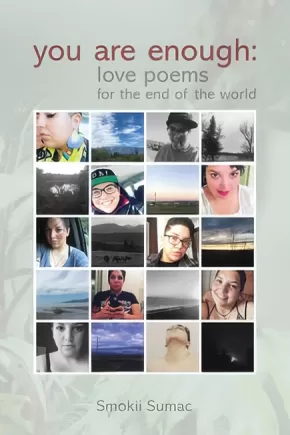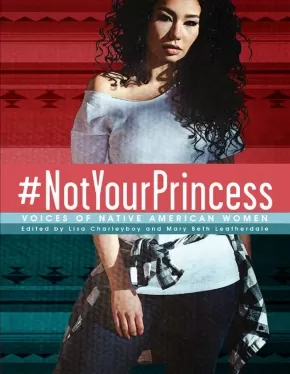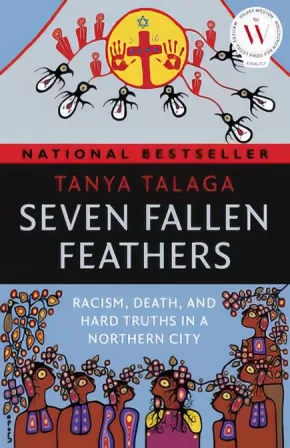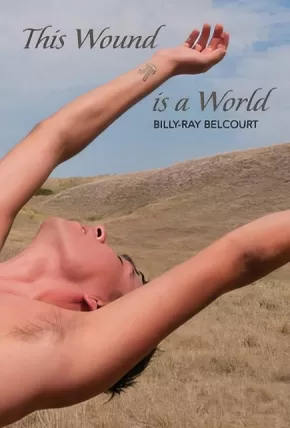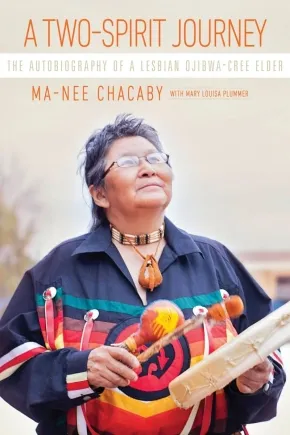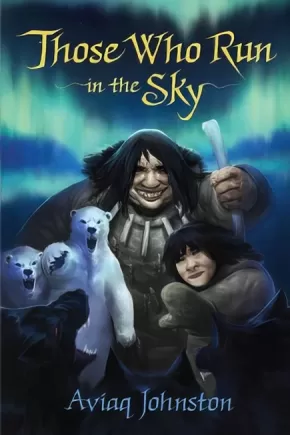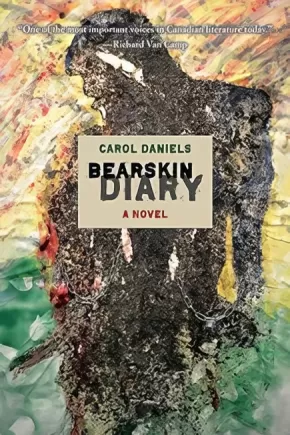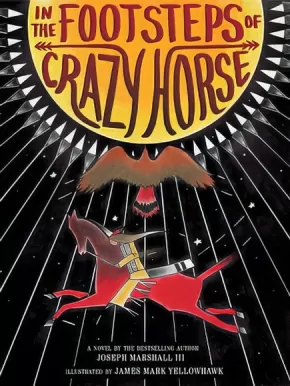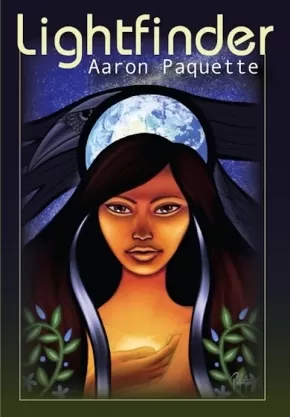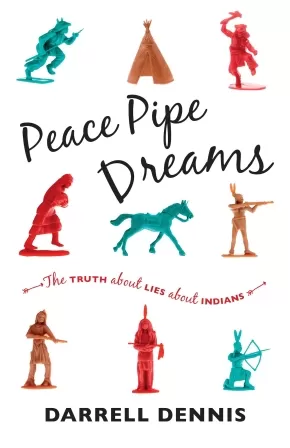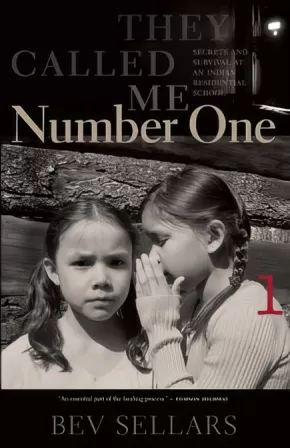
Award-Winning
61
-
75
of
80 Results;
Sort By
Go To
of 6
Trickster Drift (PB)
$21.00
Format:
Paperback
Text Content Territories:
Indigenous Canadian; First Nations; Haisla (Kitamaat);
ISBN / Barcode: 9780735273443
Synopsis:
Synopsis:
Following the Scotiabank Giller Prize-shortlisted Son of a Trickster comes Trickster Drift, the second book in Eden Robinson's captivating Trickster trilogy.
Jared Martin, seventeen, has quit drugs and drinking. But his troubles are not over: the temptation to slip is constant (thanks to his enabling, ever-partying mom, Maggie). He's being stalked by David, his mom's ex--a preppy, khaki-wearing psycho with a proclivity for rib-breaking. And Maggie, a witch as well as a badass, can't protect him like she used to because he's moved from Kitimat to Vancouver for school.
He figures that in order to be safe from both magic, addiction and David, he's got to get his grades up, find a job that doesn't involve selling weed cookies, and learn how to live with his Aunt Mave, who has been estranged from the family ever since she tried to "rescue" him as a baby from his mother. Though she smothers him with hugs, Mave is blind to the real dangers that lurk around them--the spirits and supernatural activity that fill her apartment.
As the son of a Trickster, Jared is a magnet for magic, whether he hates it or not. He sees ghosts, he sees the monster moving underneath his Aunt Georgina's skin, he sees the creature that comes out of his bedroom wall and creepily wants to suck his toes. He also still hears his father in his head, and other voices too. When David finally catches up with him, Jared can't ignore his true nature any longer. And neither can anyone else he loves.
Reviews
“As with the first book, Trickster Drift is most memorable for its set pieces. . . . The mix of sharp comedy, quick character sketches, and unsettling horror is note-perfect.” —Nathan Whitlock, Quill & Quire.
"The great strength of Trickster Drift is that humanity and empathy, but let’s be clear: there are monsters here, both human and otherwise. The novel builds to a climax that is simultaneously thrilling and thought-provoking, one which overturns much of what we have come to know. The third novel can’t come soon enough." — Robert J. Wiersema, The Star
Educator & Series Information
This is the second book in Eden Robinson's Trickster Trilogy. It is preceded by Son of a Trickster.
Additional Information
384 pages | 5.18" x 8.00" | Paperback
you are enough: love poems for the end of the world
$15.00
Format:
Paperback
Text Content Territories:
Indigenous Canadian; First Nations; Ktunaxa (Kootenay);
ISBN / Barcode: 9781928120162
Synopsis:
Synopsis:
In his debut poetry collection you are enough: love poems for the end of the world, Smokii Sumac has curated a selection of works from two years of a near daily poetry practice. What began as a sort of daily online poetry journal using the hashtag #haikuaday, has since transformed into a brilliant collection of storytelling drawing upon Indigenous literary practice, and inspired by works like Billy Ray Belcourt's This Wound is a World, and Tenille Campbell's #IndianLovePoems.
The poems follow the haiku format, often stringing together three lines to tell a story. With sections dealing with recovery from addiction and depression, coming home through ceremony, and of course, as the title suggests, on falling in and out of love, Sumac brings the reader through two years of life as a Ktunaxa Two-Spirit person. This collection will move you as Sumac addresses the grief of being an Indigenous person in Canada, shares timely (and sometimes hilarious) musings on consent, sex, and gender, introduces readers to people and places he has loved and learned from, and through it all, helps us all come to know that we are enough, just as we are.
Awards
- 2019 Indigenous Voices Awards Winner for Published Poetry in English
Additional Information
108 pages | 5.50" x 8.50"
FLASH SALE! The Marrow Thieves
$14.97 $19.95
Format:
Paperback
Text Content Territories:
Indigenous Canadian; Métis;
ISBN / Barcode: 9781770864863
Synopsis:
Synopsis:
Humanity has nearly destroyed its world through global warming, but now an even greater evil lurks. The indigenous people of North America are being hunted and harvested for their bone marrow, which carries the key to recovering something the rest of the population has lost: the ability to dream. In this dark world, Frenchie and his companions struggle to survive as they make their way up north to the old lands. For now, survival means staying hidden - but what they don't know is that one of them holds the secret to defeating the marrow thieves.
Awards
- Winner of 2017 Governor General's Literary Award
- Winner of 2017 Kirkus Prize
- Winner of the 2018 Burt Literary Award for First Nations, Inuit, and Métis Young Adult Literature.
Reviews
“Miigwans is a true hero; in him Dimaline creates a character of tremendous emotional depth and tenderness, connecting readers with the complexity and compassion of Indigenous people. A dystopian world that is all too real and that has much to say about our own.”— Kirkus Reviews
"There's a quality in Dimaline's writing that reached from the page, into my being ... That's a specific reference to the residential schools of the past, where so much was taken from Native children. It is one of many points in The Marrow Thieves where - painfully or with exquisite beauty - Dimaline's story resonates with me. It will resonate with other Native readers, too, especially those who are Anishinabe. Several tribal nations are mentioned in here, too ... There's so much more to say ... about Miggs and Isaac, about Ri, about Minerva, about French. But I'll stop and let you be with these achingly dear characters. I highly recommend The Marrow Thieves." — Debbie Reese, American Indians in Children's Literature
"In The Marrow Thieves, Cherie Dimaline creates a near-future world which distinctly echoes our own, current and past traumas that have come back to repeat themselves, fiction with a basis in reality that gives the narrative a sheen of hard truths, following the trials and tribulations of a relatable cast of characters and their struggles to survive, and live their lives with the love and safety denied to them. The high-stakes tension of each scene pulls the reader along through the story, with a core message about our dreams and culture, which despite losses, has the potential to heal, and the power to restore." — Trillium Book Award Jury Citation, June 2018
"[The Marrow Thieves] brilliantly connects the legacy of residential schools to a dystopian post-climate-change future where only Indigenous people are able to dream. Dimaline’s novel reminds us of the power of storytelling and the importance of community, reinforced for the disenfranchised children by the wisdom of the heroic elder, Miigwans. The writing is painful yet beautiful, bleak but ultimately hopeful. In this era of reconciliation, Cherie Dimaline’s The Marrow Thieves is a work of speculative fiction that resonates and stays with the reader long past the last page." — Sunburst Award Jury Citation, October 2018
Educator & Series Information
Recommended Ages: 13+
Recommended English First Peoples resource for grades 11-12.
This book is part of the Marrow Thieves series.
The Canadian Indigenous Books for Schools list recommends this resource for Grades 9-12 English Language Arts.
Caution: This book touches on physical and sexual violence.
DCB Young Readers has created a Teacher's Guide for this resource, which can be downloaded here: Teachers Guide - The Marrow Thieves
This resource is also available in French: Pilleurs de rêves
Additional Information
180 pages | 5.00" x 8.00"
#NotYourPrincess
$14.95
Editors:
Format:
Paperback
Text Content Territories:
Indigenous;
ISBN / Barcode: 9781554519576
Synopsis:
Synopsis:
Native women demand to be heard in this stunning anthology.
Whether looking back to a troubled past or welcoming a hopeful future, the powerful voices of Indigenous girls and women across North America resound in this book. In the same visual style as the bestselling Dreaming in Indian, #NotYourPrincess presents an eclectic collection of poems, essays, interviews, and art that combine to express the experience of being a Native woman. Stories of abuse, intergenerational trauma, and stereotyping are countered by the voices of passionate women demanding change and realizing their dreams. Sometimes outraged, often reflective, but always strong, the women in this book will give teen readers insight into the lives of women who, for so long, have had their history hidden and whose modern lives have been virtually invisible.
Reviews
“A stunning anthology of creative writing and art . . . All YA collections will want this."— Alicia Abdul, School Library Journal
Educator Information
Themes: First Nations; Native Peoples; Indigenous; girls and women; biography; multicultural; stereotyping; acceptance; community; prejudice; self-esteem; tolerance
Interest Age 14+ | Grade 9+
The Canadian Indigenous Books for Schools list recommends this resource for Grades 8-12 for these subjects: English Language Arts, Social Justice, Social Studies.
Additional Information
8.5 x 11 | 112 Pages
Seven Fallen Feathers: Racism, Death, and Hard Truths in a Northern City
$22.99
Format:
Paperback
Text Content Territories:
Indigenous Canadian; First Nations; Anishinaabeg; Ojibway;
ISBN / Barcode: 9781487002268
Synopsis:
Synopsis:
In 1966, twelve-year-old Chanie Wenjack froze to death on the railway tracks after running away from residential school. An inquest was called and four recommendations were made to prevent another tragedy. None of those recommendations were applied.
More than a quarter of a century later, from 2000 to 2011, seven Indigenous high school students died in Thunder Bay, Ontario. The seven were hundreds of miles away from their families, forced to leave home and live in a foreign and unwelcoming city. Five were found dead in the rivers surrounding Lake Superior, below a sacred Indigenous site. Jordan Wabasse, a gentle boy and star hockey player, disappeared into the minus twenty degrees Celsius night. The body of celebrated artist Norval Morrisseau’s grandson, Kyle, was pulled from a river, as was Curran Strang’s. Robyn Harper died in her boarding-house hallway and Paul Panacheese inexplicably collapsed on his kitchen floor. Reggie Bushie’s death finally prompted an inquest, seven years after the discovery of Jethro Anderson, the first boy whose body was found in the water.
Using a sweeping narrative focusing on the lives of the students, award-winning investigative journalist Tanya Talaga delves into the history of this small northern city that has come to manifest Canada’s long struggle with human rights violations against Indigenous communities.
A portion of each sale of Seven Fallen Feathers will go to the Dennis Franklin Cromarty Memorial Fund, set up in 1994 to financially assist Nishnawbe Aski Nation students’ studies in Thunder Bay and at post-secondary institutions.
Awards
- 2018-2019 First Nation Communities Read
- 2018 RBC Taylor Prize
Reviews
“Talaga has written Canada’s J’Accuse, an open letter to the rest of us about the many ways we contribute — through act or inaction — to suicides and damaged existences in Canada’s Indigenous communities. Tanya Talaga’s account of teen lives and deaths in and near Thunder Bay is detailed, balanced and heart-rending. Talaga describes gaps in the system large enough for beloved children and adults to fall through, endemic indifference, casual racism and a persistent lack of resources. It is impossible to read this book and come away unchanged.” — RBC Taylor Prize Jury Citation
“In Seven Fallen Feathers, Tanya Talaga delves into the lives of seven Indigenous students who died while attending high school in Thunder Bay over the first eleven years of this century. With a narrative voice encompassing lyrical creation myth, razor-sharp reporting, and a searing critique of Canada’s ongoing colonial legacy, Talaga binds these tragedies — and the ambivalent response from police and government — into a compelling tapestry. This vivid, wrenching book shatters the air of abstraction that so often permeates news of the injustices Indigenous communities face every day. It is impossible to read Seven Fallen Feathers and not care about the lives lost, the families thrust into purgatory, while the rest of society looks away.” — Hilary Weston Writers’ Trust Prize for Nonfiction Jury Citation
“[A]n urgent and unshakable portrait of the horrors faced by Indigenous teens going to school in Thunder Bay, Ontario, far from their homes and families. . . . Talaga’s incisive research and breathtaking storytelling could bring this community one step closer to the healing it deserves.” — Booklist, STARRED REVIEW
“Seven Fallen Feathers may prove to be the most important book published in Canada in 2017. Tanya Talaga offers well-researched, difficult truths that expose the systemic racism, poverty, and powerlessness that contribute to the ongoing issues facing Indigenous youth, their families, and their communities. It is a call to action that deeply honours the lives of the seven young people; our entire nation should feel their loss profoundly.” — Patti LaBoucane-Benson, author of The Outside Circle
“[W]here Seven Fallen Feathers truly shines is in Talaga’s intimate retellings of what families experience when a loved one goes missing, from filing a missing-persons report with police, to the long and brutal investigation process, to the final visit in the coroner’s office. It’s a heartbreaking portrait of an indifferent and often callous system . . . Seven Fallen Feathers is a must-read for all Canadians. It shows us where we came from, where we’re at, and what we need to do to make the country a better place for us all.” — The Walrus
Educator Information
The Canadian Indigenous Books for Schools list recommends this resource for Grade 12 English Language Arts and Social Studies.
Curriculum Connections: Indigenous Studies, History, Health
Additional Information
376 pages | 5.50" x 8.50" | 8-page colour insert and maps
This Wound is a World
$19.95
Format:
Paperback
Text Content Territories:
Indigenous Canadian;
Grade Levels: 12; University/College;
ISBN / Barcode: 9781927823644
Synopsis:
Synopsis:
Part manifesto, part memoir, This Wound is a World is an invitation to “cut a hole in the sky to world inside.” Billy-Ray Belcourt issues a call to turn to love and sex to understand how Indigenous peoples shoulder sadness and pain like theirs without giving up on the future. His poems upset genre and play with form, scavenging for a decolonial kind of heaven where “everyone is at least a little gay.”
Awards
- 2018 Griffin Poetry Prize
- 2018 Indigenous Voices Award - Most Significant Work of Poetry in English
Reviews
"In This Wound is a World, love answers heartbreak, “history lays itself bare” (42) and a world glimmering with decolonial love and queer, Indigenous possibilities is split open. This is poetry at its brightest. It is electric, profound, necessary work. Belcourt bends genre, challenging the cage of colonialism through a poetics of intimacy. It is a collection unafraid to ask questions, exploring grief, desire, queer sexuality and Indigeneity with tender honesty. Belcourt asks us to consider the ways Indigenous bodies can be simultaneously unbound and “rendered again,” (40) how worlds can be made and unmade. These are poems to be returned to again and again with reverence." - PRISM International
Additional Information
64 pages | 6.00" x 9.00"
A Two-Spirit Journey: The Autobiography of a Lesbian Ojibwa-Cree Elder
$24.95
Format:
Paperback
Text Content Territories:
Indigenous Canadian; First Nations; Anishinaabeg; Oji-Cree;
Grade Levels: 12; University/College;
ISBN / Barcode: 9780887558122
Synopsis:
Synopsis:
A compelling, harrowing, but ultimately uplifting story of resilience and self-discovery.
A Two-Spirit Journey is Ma-Nee Chacaby’s extraordinary account of her life as an Ojibwa-Cree lesbian. From her early, often harrowing memories of life and abuse in a remote Ojibwa community riven by poverty and alcoholism, Chacaby’s story is one of enduring and ultimately overcoming the social, economic, and health legacies of colonialism.
As a child, Chacaby learned spiritual and cultural traditions from her Cree grandmother and trapping, hunting, and bush survival skills from her Ojibwa stepfather. She also suffered physical and sexual abuse by different adults, and in her teen years became alcoholic herself. At twenty, Chacaby moved to Thunder Bay with her children to escape an abusive marriage. Abuse, compounded by racism, continued, but Chacaby found supports to help herself and others. Over the following decades, she achieved sobriety; trained and worked as an alcoholism counsellor; raised her children and fostered many others; learned to live with visual impairment; and came out as a lesbian. In 2013, Chacaby led the first gay pride parade in Thunder Bay.
Ma-Nee Chacaby has emerged from hardship grounded in faith, compassion, humour, and resilience. Her memoir provides unprecedented insights into the challenges still faced by many Indigenous people.
Awards
- 2025 Canada Reads winner
Reviews
“From groundbreaking and controversial AIDS awareness programs in the 1990s to the work she continues to do today, both with her own family and her extended reserve family, her life and this memoir ultimately serve as handbook of hope.” — Lara Rae, Winnipeg Free Press
"A Two-Spirit Journey is a raw and emotional story that doesn’t just show readers the author’s scars. Chacaby bares all in an honest telling of her life that includes flaws, like her struggles with substance abuse and a sometimes rocky path to sobriety. Despite the turmoil, the autobiography does have its uplifting moments and characters. Heartwarming stories of childhood friendships, and most importantly a powerful relationship between the author and her grandmother, weave feelings of optimism and hope into a life that is oftentimes surrounded by darkness.” — Scott Paradis, tbnewswatch.com
“An extraordinary account of an extraordinary life and very highly recommended for community and academic library Contemporary Biography, LGBT, and Native American Studies collections.” — Midwest Book Review
“Activist, survivor, mother, counsellor, Ma-Nee Chacaby recounts her sometimes harrowing life with a calm and steady voice, infused with resilience and compassion. Effectively designed and edited to appeal to both the general public and those engaged in Indigenous studies, A Two-Spirit Journey presents an important story, powerfully told.” — Nik Burton, Rick Walker, and Carolyn Wood, Judges, 2017 Manitoba Book Awards
“The story that Chacaby and Plummer recount is truly an extraordinary one, but it is also one that will resonate with many people whose stories have not been often told. The perspective of a lesbian Ojibwa-Cree elder is invaluable for LGBT Native youth and will be an enriching experience for many others, particularly those who have experienced abuse, disability, poverty, or the effects of colonization.” — Kai Pyle, Studies in American Indian Literatures
Educator Information
This book would be useful for courses in women's studies, social studies, and gender studies. Recommended for students in grade 12 or at a college/university level.
Caution: discussion of physical and sexual abuse.
This resource is also available in French: Un parcours bispirituel: Recit d'une ainee ojibwe-crie lesbienne.
Additional Information
256 pages | 6.00" x 9.00"
The Break
$23.99
Format:
Paperback
Text Content Territories:
Indigenous Canadian; Métis;
ISBN / Barcode: 9781487001117
Synopsis:
Synopsis:
When Stella, a young Métis mother, looks out her window one evening and spots someone in trouble on the Break — a barren field on an isolated strip of land outside her house — she calls the police to alert them to a possible crime.
In a series of shifting narratives, people who are connected, both directly and indirectly, with the victim — police, family, and friends — tell their personal stories leading up to that fateful night. Lou, a social worker, grapples with the departure of her live-in boyfriend. Cheryl, an artist, mourns the premature death of her sister Rain. Paulina, a single mother, struggles to trust her new partner. Phoenix, a homeless teenager, is released from a youth detention centre. Officer Scott, a Métis policeman, feels caught between two worlds as he patrols the city. Through their various perspectives a larger, more comprehensive story about lives of the residents in Winnipeg’s North End is exposed.
A powerful intergenerational family saga, The Break showcases Vermette’s abundant writing talent and positions her as an exciting new voice in Canadian literature.
Awards
- 2017 Burt Award for First Nations, Inuit, and Métis Literature Winner
- Margaret Laurence Award for Fiction Winner
- McNally Robison Book of the Year Winner
- Amazon.ca First Novel Award
Reviews
“Vermette is a staggering talent. Reading The Break is like a revelation; stunning, heartbreaking and glorious. From her exquisitely rendered characters to her fully realized world and the ratcheting tension, I couldn’t put it down. Absolutely riveting.” — Eden Robinson, author of Monkey Beach
“In Vermette’s poetic prose, The Break offers a stark portrayal of the adversity that plagues First Nations women in this country — and the strength that helps them survive.” — Toronto Star
“The Break doesn’t read like an impressive first novel; it reads like a masterstroke from someone who knows what they’re doing . . . Vermette is skilled at writing with a language that is conversational and comfortable and with a poetic ease that makes the hard things easier to swallow. The result is a book that is at times emotionally demanding, funny, suspenseful, and always engaging.”—The Winnipeg Review
“This is a debut novel by the Governor General's Literary Award-winning Métis poet Katherena Vermette. The story takes place in Winnipeg's North End. And it starts when Stella thinks she sees a violent assault taking place in a barren strip of land outside her window, known as The Break. Turns out, she is right. In fact, there is a threat of violence that hovers over all the women in the story, three generations of them, and the story is told in many voices. Katherena writes with empathy and understanding about people who are living with the pain of intergenerational trauma. The Winnipeg winter she evokes is cold and cruel. But there is such love, loyalty and support in this story. If you enjoy a gripping family saga, I would recommend The Break.” — Shelagh Rogers, CBC The Next Chapter
Educator Information
Grades 11-12 BC English First Peoples resource for the unit What Creates Family?
The Canadian Indigenous Books for School list recommends this resource for Grades 10-12 English Language Arts.
Curriculum Connections: English, Indigenous Studies, Anthropology
Note: This novel contains mature and challenging content, such as incidents of drug use, rape, and, violence.
Additional Information
288 pages | 5.25" x 8.00"
Those Who Run in the Sky
$15.95
Artists:
Format:
Paperback
Text Content Territories:
Indigenous Canadian; Inuit;
ISBN / Barcode: 9781772271218
Synopsis:
Synopsis:
This teen novel, written by Iqaluit-based Inuit author Aviaq Johnston, is a coming-of-age story that follows a young shaman named Pitu as he learns to use his powers and ultimately finds himself lost in the world of the spirits. After a strange and violent blizzard leaves Pitu stranded on the sea ice, without his dog team or any weapons to defend himself, he soon realizes that he is no longer in the world that he once knew. The storm has carried him into the world of the spirits, a world populated with terrifying creatures---black wolves with red eyes, ravenous and constantly stalking him; water-dwelling creatures that want nothing more than to snatch him and pull him into the frigid ocean through an ice crack. As well as beings less frightening, but equally as incredible, such as a lone giant who can carry Pitu in the palm of her hand and keeps caribou and polar bears as pets. After stumbling upon a fellow shaman who has been trapped in the spirit world for many years, Pitu must master all of his shamanic powers to make his way back to the world of the living, to his family, and to the girl that he loves.
Award
- 2018 Winner of Indigenous Voices Award for Most Significant Work of Prose in English by an Emerging Indigenous Writer
Educator Information
Recommended in the Canadian Indigenous Books for Schools 2019-2020 resource list for grades 7 to 10 for English Language Arts.
Additional Information
208 pages | 6.00" x 9.00"
Bearskin Diary
$21.95
Format:
Paperback
Text Content Territories:
Indigenous Canadian; First Nations;
ISBN / Barcode: 9780889713116
Synopsis:
Synopsis:
In 2017-2018, Bearskin Diary was the award recipient for First Nation Communities Read.
Raw and honest, Bearskin Diary gives voice to a generation of First Nations women who have always been silenced, at a time when movements like Idle No More call for a national inquiry into the missing and murdered Aboriginal women. Carol Daniels adds an important perspective to the Canadian literary landscape.
Taken from the arms of her mother as soon as she was born, Sandy was only one of over twenty thousand Aboriginal children scooped up by the federal government between the 1960s and 1980s. Sandy was adopted by a Ukrainian family and grew up as the only First Nations child in a town of white people. Ostracized by everyone around her and tired of being different, at the early age of five she tried to scrub the brown off her skin. But she was never sent back into the foster system, and for that she considers herself lucky.
From this tragic period in her personal life and in Canadian history, Sandy does not emerge unscathed, but she emerges strong--finding her way by embracing the First Nations culture that the Sixties Scoop had tried to deny. Those very roots allow Sandy to overcome the discriminations that she suffers every day from her co-workers, from strangers and sometimes even from herself.
Additional Information
|
In the Footsteps of Crazy Horse (4 in stock, in reprint)
$23.99
Artists:
Format:
Hardcover
Text Content Territories:
Indigenous American; Native American; Sioux; Lakota;
ISBN / Barcode: 9781419707858
Synopsis:
Synopsis:
Through stories of Lakota leader Crazy Horse, a boy learns about his heritage and himself in this American Indian Youth Literature Award-winning novel from acclaimed author Joseph Marshall III.
Jimmy McClean is a Lakota boy, though you wouldn’t guess it by his name. His mother is Lakota, and his father is half white and half Lakota. Over summer break, Jimmy embarks on a journey with his grandfather, Nyles High Eagle. While on the road, his grandfather tells him the story of Crazy Horse, one of the most important figures in Lakota, and American, history.
Expertly intertwining fiction and nonfiction, celebrated Brulé Lakota author Joseph Marshall III chronicles the many heroic deeds of Crazy Horse, especially his taking up arms against the U.S. government. He fiercely fought against encroachments on the territories and way of life of the Lakota people, including leading a war party to victory at the Battle of the Greasy Grass (the Battle of the Little Bighorn) and playing a major and dangerous role as decoy at the Battle of the Hundred in the Hands (the Fetterman Battle). With Sitting Bull, Crazy Horse was the last of the Lakota to surrender his people to the U.S. Army. Through his grandfather’s tales about the famous warrior, Jimmy learns about his Lakota heritage and, ultimately, himself.
Drawing references and inspiration from the oral stories of the Lakota tradition, Marshall gives readers an insider’s perspective on the life of Tasunke Witko, better known as Crazy Horse.
Reviews
"This powerful introduction to a great warrior and leader invites readers to ponder the meaning of 'hero.'"— Kirkus Reviews
"As Jimmy and his grandfather’s journey comes to an end, the boy has gained much more than a history lesson—he learns a great deal about courage, sacrifice, and the ties that connect him to his ancestors. VERDICT A moving narrative that should be required reading for all students of American history." — School Library Journal
“It provides insights and stories that you don't get from academic historians…There is nothing like it.” — Debbie Reese, American Indians in Children's Literature
Educator Information
Recommended for ages 10 to 14.
Recommended for ages 10 to 14.
Additional Information
176 pages | 6.20" x 8.25" | Black and White Illustrations | Hardcover
Unsettling Canada: A National Wake-Up Call - Second Edition
$29.95
Format:
Paperback
Text Content Territories:
Indigenous Canadian;
ISBN / Barcode: 9781771135566
Synopsis:
Synopsis:
A Canadian bestseller and winner of the 2016 Canadian Historical Association Aboriginal History Book Prize, Unsettling Canada is a landmark text built on a unique collaboration between two First Nations leaders.
Arthur Manuel (1951-2017) was one of the most forceful advocates for Indigenous title and rights in Canada; Grand Chief Ron Derrickson, one of the most successful Indigenous businessmen in the country. Together, they bring a fresh perspective and bold new ideas to Canada's most glaring piece of unfinished business: the place of Indigenous peoples within the country's political and economic space.
This vital second edition features a foreword by award-winning activist Naomi Klein and an all-new chapter co-authored by law professor Nicole Schabus and Manuel's son, Ska7cis, honouring the multi-generational legacy of the Manuel family's work.
Reviews
“Pragmatic and helpful, this is a timely book for our fraught and political moment” — Quill & Quire
"Unsettling Canada is a breathtakingly beautiful story of Indigenous resistance, strength, and movement building. Unsettling Canada echoes the power of George Manuel's The Fourth World, centering the heart of the narrative deep inside a kind of Indigenous intelligence rarely shared outside our communities. This is the critical conversation that Canada and Indigenous peoples must have because it is centred on land, and, therefore, it is one of the most important books on Indigenous politics I've ever read." — Leanne Betasamosake Simpson, author of Dancing on Our Turtle's Back
Educator Information
This resource would be useful for courses in history, social justice, political science, and social studies. Recommended for students in grades 10 to 12 or those at a college/university level.
Additional Information
320 pages | 6.00" x 9.00"
Lightfinder (3 in stock, in reprint)
$22.00
Artists:
Format:
Paperback
Text Content Territories:
Indigenous Canadian; First Nations; Cree (Nehiyawak);
ISBN / Barcode: 9780986874079
Synopsis:
Synopsis:
Lightfinder is a Young Adult fantasy novel about Aisling, a young Cree woman who sets out into the wilderness with her Kokum (grandmother), Aunty and two young men she barely knows.
They have to find and rescue her runaway younger brother, Eric. Along the way she learns that the legends of her people might be real and that she has a growing power of her own. The story follows the paths of Aisling and Eric, siblings unwittingly thrust into a millennia-old struggle for the future of life on earth. It deals with growing up, love and loss, and the choices life puts in our path. Love and confusion are in store, as are loss and pain. Things are not always what they seem and danger surrounds them at every turn. Will Raven's mysterious purposes prevail? With darkness closing in how will they find the light to guide them? Will Aisling find Eric in time?
Set in the Alberta landscape with references to real-world challenges faced by youth today, Lightfinder has proven to be a hit with young adults and adults alike. Lightfinder spent over 60 days in Amazon's Top 100 Sci-Fi and Fantasy novels in 2014.
Awards
- Winner of the 2015 Burt Award for First Nations, Métis and Inuit Literature!
Reviews
"With an artist's eye and a storyteller's soaring imagination, Aaron Paquette has written a page-turner. I found myself rooting hard for Aisling, Eric and their beloved Kokum. This book is a hugely engaging cautionary tale: the stakes are high if we keep giving in to our appetites. But there is great light in Lightfinder. Congratulations, Aaron, on this strong debut." - Shelagh Rogers
Educator Information
Recommended Ages: 11-18
Additional Information
240 pages | 6.00" x 9.00"
Peace Pipe Dreams
$22.95
Format:
Paperback
Text Content Territories:
Indigenous Canadian; Métis; Inuit; First Nations;
ISBN / Barcode: 9781771000406
Synopsis:
Synopsis:
In 2015-2016, Peace Pipe Dreams was the award recipient for First Nation Communities Read.
Darrell Dennis is a stereotype-busting, politically incorrect Native American/Aboriginal/Shuswap (Only he's allowed to call himself an "Indian." Maybe. Under some circumstances). With a large dose of humour and irreverence, he untangles some of the truths and myths about First Nations: Why do people think Natives get free trucks, and why didn't he ever get one? Why does the length of your hair determine whether you’re good or bad? By what ratio does the amount of rain in a year depend on the amount of cactus liquor you consume?
In addition to answering these burning questions, Dennis tackles some tougher subjects. He looks at European-Native interactions in North America from the moment of first contact, discussing the fur trade, treaty-signing and the implementation of residential schools. Addressing misconceptions still widely believed today, Dennis explains why Native people aren't genetically any more predisposed to become alcoholics than Caucasians; that Native religion doesn't consist of worshipping rocks, disappearing into thin air, or conversing with animals; and that tax exemptions are so limited and confusing that many people don't even bother.
Employing pop culture examples, personal anecdote and a cutting wit, Darrell Dennis deftly weaves history with current events to entertain, inform and provide a convincing, readable overview of First Nations issues and why they matter today.
Additional Information
224 pages | 5.65" x 8.52"
They Called Me Number One: Secrets and Survival at an Indian Residential School
$19.95
Format:
Paperback
Text Content Territories:
Indigenous Canadian; First Nations; Salish; Interior Salish; Secwepemc (Shuswap); Xat’sull (Soda Creek);
ISBN / Barcode: 9780889227415
Synopsis:
Synopsis:
Like thousands of Aboriginal children in Canada, and elsewhere in the colonized world, Xatsu'll chief Bev Sellars spent part of her childhood as a student in a church-run residential school.
These institutions endeavored to "civilize" Native children through Christian teachings; forced separation from family, language, and culture; and strict discipline. Perhaps the most symbolically potent strategy used to alienate residential school children was addressing them by assigned numbers only-not by the names with which they knew and understood themselves.
In this frank and poignant memoir of her years at St. Joseph's Mission, Sellars breaks her silence about the residential school's lasting effects on her and her family-from substance abuse to suicide attempts-and eloquently articulates her own path to healing. 'Number One' comes at a time of recognition-by governments and society at large-that only through knowing the truth about these past injustices can we begin to redress them.
Awards
- 2014 Burt Award Third Place Winner
Educator Information
Grades 10-12 BC English First Peoples resource for the unit Place-Conscious Learning - Exploring Text through Local Landscape.
Additional Information
256 pages | 5.67" x 8.20"
Sort By
Go To
of 6

